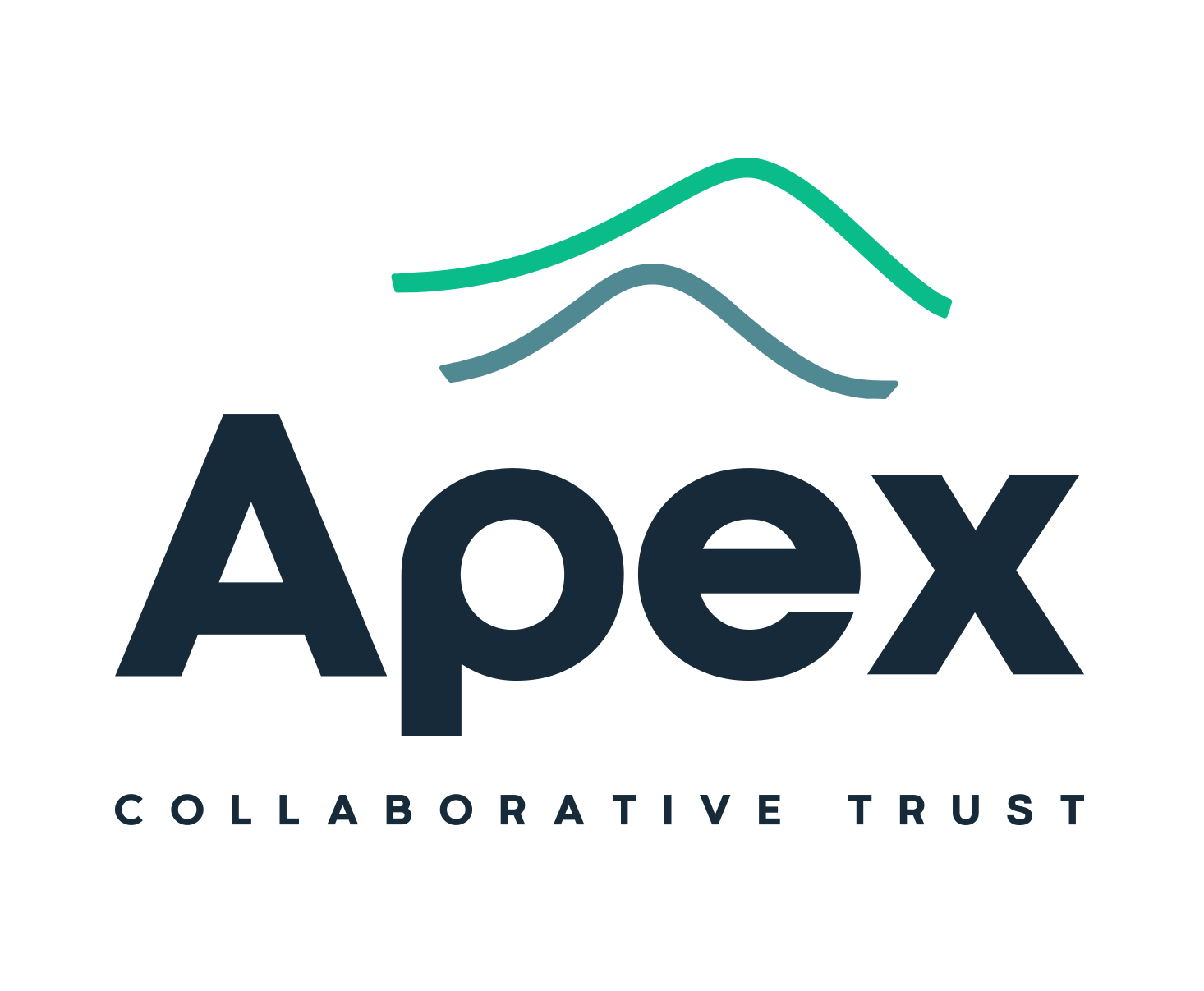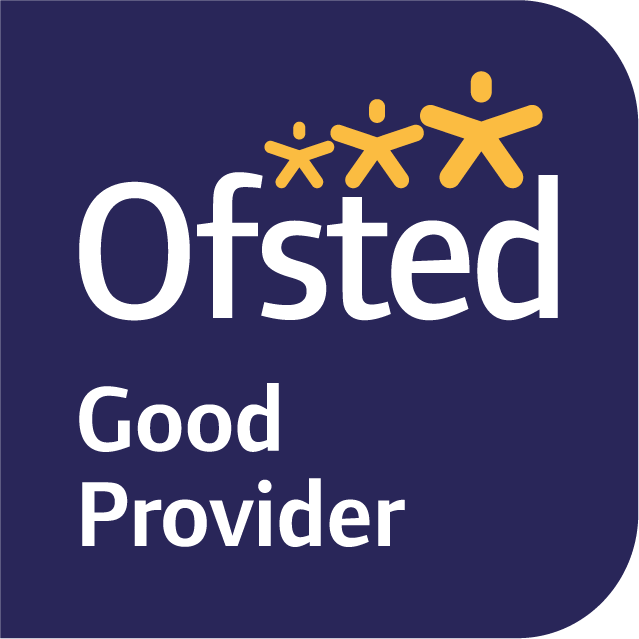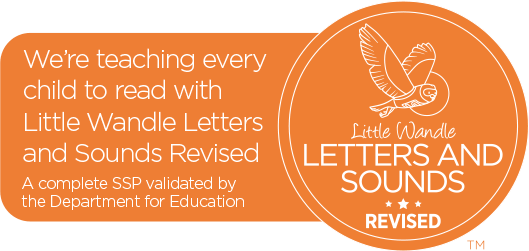Maths
Apex Collaborative Trust follows a curriculum that engineers success using a mastery approach. Following the White Rose Maths curriculum with reference to the NCETM Spines, ensuring small-step progression through careful curriculum sequencing. It draws heavily upon research conducted by the EEF (Education Endowment Fund) and their recommendations.
The NCETM Spine documents enhance our pedagogical approach and ensure teachers can plan and deliver lessons that align with the DfE's non-statutory guidance for teaching mathematics whilst meeting the needs of the children in their class. Careful planning and preparation enable teachers to draw on the pedagogical approaches from the Spines to enhance the White Rose Maths teaching sequence.
The National Curriculum for maths ensures that children:
At Blacko Primary School, these three elements are embedded within Maths lessons and are developed over time. Maths is a rich and interconnected subject and our aim is to support children to move fluently between different concepts and different representations of mathematical ideas, through both procedural and conceptual variation. Programmes of study are carefully designed to enable children to make these rich connections across mathematical ideas and to develop fluency, reasoning and confidence to solve increasingly sophisticated problems.
Our approach aims to provide all children with full access to a creative and engaging curriculum, enabling them to develop their independence, confidence and competence. Concepts are taught through manageable small steps, based around White Rose Maths schemes and the NCETM Professional Development materials, which build on skills children have learnt. We use mistakes and misconceptions as an essential part of learning and enable children to acquire maths skills that can be recalled quickly and transferred and applied in different contexts.
Small steps for both declarative and procedural understanding are planned for, giving due consideration to common misconceptions that are likely to occur. In order for children to retrieve knowledge from long-term memory, ‘It’s nothing new’ and daily arithmetic are carefully considered and planned into the curriculum from KS1 through to KS2.
Our overall aim is to prevent widened gaps in learning by having coherently planned units, which provide teachers with some autonomy to tailor teaching so that it is adapted to meet the needs and next steps of all learners – allowing them the freedom to excel. The reactive aspect of the curriculum allows teachers to seek out these gaps and implement timely interventions or pre-learning opportunities.
Teachers have high expectations of all pupils with SEND. Teachers do not compromise the requirement for overlearning to ensure automaticity. Staff will also use the decided whether to wait, or whether to act approach. This means that there is no automatic assumption that pupils identified as SEN cannot achieve. Early identification of gaps is a key component of our approach. Drawing from the DfE Ready to Progress document, teachers identify and assess gaps in learning within a cohort. Furthermore, diagnostic assessment tools such as Sandwell Early Numeracy Assessment ascertain the next small steps for the very small proportion of pupils progressing outside the age-related expectations of their year group.
EYFS White Rose Maths

In EYFS we follow the White Rose Guidance for Reception, which is used to ensure coverage and progression and also introduces the children to key concepts, mathematical language and understanding. This is supplemented with an additional daily session following the NCETM Mastering Number programme.
The NCETM Mastering Number programme aims to secure firm foundations in the development of good number sense for all children. The aim over time is that children will leave EYFS with confidence in number skills. Attention will be given to key knowledge and understanding needed in Reception classes, and progression through KS1 to support success in the future. The consistency of these materials helps to bridge the transition from EYFS to KS1.
Maths provision in EYFS includes adult-led sessions, group activities and child-led learning through enhanced provision, where children are able to access skills independently. Alongside this, children are given opportunities to follow their own interests through play, which should encourage them to foster a lifelong love of maths. The Learning Trajectories are used as a formative assessment tool to support teachers in identifying gaps in learning and planning next steps.
Quality Assurance
We have developed a collaborative approach to quality assurance which supports teachers to reflect and refine the sequencing of the core knowledge and foundational concepts for their subjects, and evaluate the effectiveness of the principles of direct instructional teaching whilst securing the skills to know when knowledge is secure before pupils move on. This is overseen and facilitated by the Maths Lead, who then uses this information to plan and monitor next steps in the subject’s development.
Assessment in Maths
Fundamental to the effectiveness of our curriculum is our approach to assessment. We utilise a responsive approach to assessment strategies which focus on moving the learning forward and the activation of learners as owners of their own learning. We recognise that effective feedback should be specific, accurate and timely and provide clear guidance on how to improve. Pupils are explicitly taught meta-cognitive strategies through dialogic talk as well as how to monitor, plan and evaluate their learning. The information provided by assessments is essential for planning and adaptive teaching. We assess the children after every unit of learning and use these assessments to address any gaps in learning through intervention or whole-class teaching. In addition to this, children also complete end-of-term assessments.
Inclusion & SEND Across Our Curriculum
Across all areas of the primary curriculum, we are committed to ensuring that every pupil—including those with SEND, those who are disadvantaged, and pupils from all backgrounds and demographics—can access, engage with and succeed in their learning.
Our curriculum is designed to be inclusive by intent and adaptive in practice, ensuring that high expectations are maintained for all learners while removing barriers to participation and progress.
High-Quality, Inclusive Teaching in Every Subject
In every subject, pupils with SEND are supported to access learning through carefully planned adaptations that are responsive to individual need. These adaptations are part of high-quality first teaching and are planned by class teachers in collaboration with the SENDCo where appropriate.
Adaptations are informed by the EEF’s ‘Five-a-Day’ principles for SEND, ensuring that teaching strategies are evidence-based and benefit all learners. These may include:
-
Flexible grouping and targeted adult support
-
Clear modelling and explicit instruction
-
Use of visuals, scaffolds and structured resources
-
Opportunities for retrieval, overlearning and pre-teaching
-
Assistive technology or alternative methods of recording
Such approaches support pupils with SEND while also strengthening learning for disadvantaged pupils and the wider class.
Subject-Specific Adaptation and Access
Each curriculum subject is planned with consideration for:
-
Cognitive demand and curriculum sequencing
-
Language and vocabulary development
-
Practical and multisensory learning opportunities
-
Alternative ways for pupils to demonstrate understanding
Where needed, teachers implement Ordinarily Available Provision (OAP) within lessons to ensure pupils can participate meaningfully in subject learning alongside their peers.
This ensures that pupils are not removed from learning unnecessarily and that adaptations remain closely aligned to the curriculum’s intended knowledge and skills.
Early Identification and Responsive Support
Across all subjects, pupil progress is closely monitored. Where barriers to learning are identified, teachers follow a graduated response (Assess, Plan, Do, Review) to ensure timely and appropriate support.
Subject leaders work alongside the SENDCo to:
-
Review curriculum accessibility
-
Support teachers with inclusive subject-specific strategies
-
Ensure adaptations are effective and proportionate
-
Maintain ambitious outcomes for all learners
This reflects the current Ofsted focus on how well schools identify need, adapt curriculum delivery and evaluate impact for pupils with SEND.
Partnership with Families
We recognise the importance of working in partnership with parents and carers. Our Inclusion and SEND page provides further information about:
-
How subject learning may be adapted
-
What support looks like in the classroom
-
How progress is communicated
-
Where families can access additional advice or support
Through open communication, we ensure that provision across all curriculum areas reflects each child’s strengths, needs and aspirations.
Inclusive Curriculum & Ofsted Expectations
Our approach aligns with the latest Ofsted Inspection Framework, which places strong emphasis on:
-
Inclusive curriculum design
-
The effectiveness of adaptive teaching
-
The impact of support for pupils with SEND and those who are disadvantaged
-
Leaders’ understanding of how well pupils access and achieve across subjects
We continually review our curriculum and teaching practices to ensure that all pupils are supported to achieve well across every subject area.
For further information, please see our SEND and Inclusion Page on our school website.
The rationale of our mathematics curriculum is based upon guidance from:
The Education Endowment Foundation Improving Mathematics in Early Years, Key Stage 1, Key Stage 2 and 3 Improving Mathematics in the Early Years and Key Stage 1 | EEF (educationendowmentfoundation.org.uk) Improving Mathematics in Key Stages 2 and 3 | EEF (educationendowmentfoundation.org.uk)
The Ofsted Research Review of Mathematics Research review series: mathematics - GOV.UK (www.gov.uk)
The Department for Education ready to progress non-statutory guidance Mathematics guidance: key stages 1 and 2 (covers years 1 to 6) (publishing.service.gov.uk)
The National Centre for the Teaching of mathematics (NCETM) Home | NCETM




